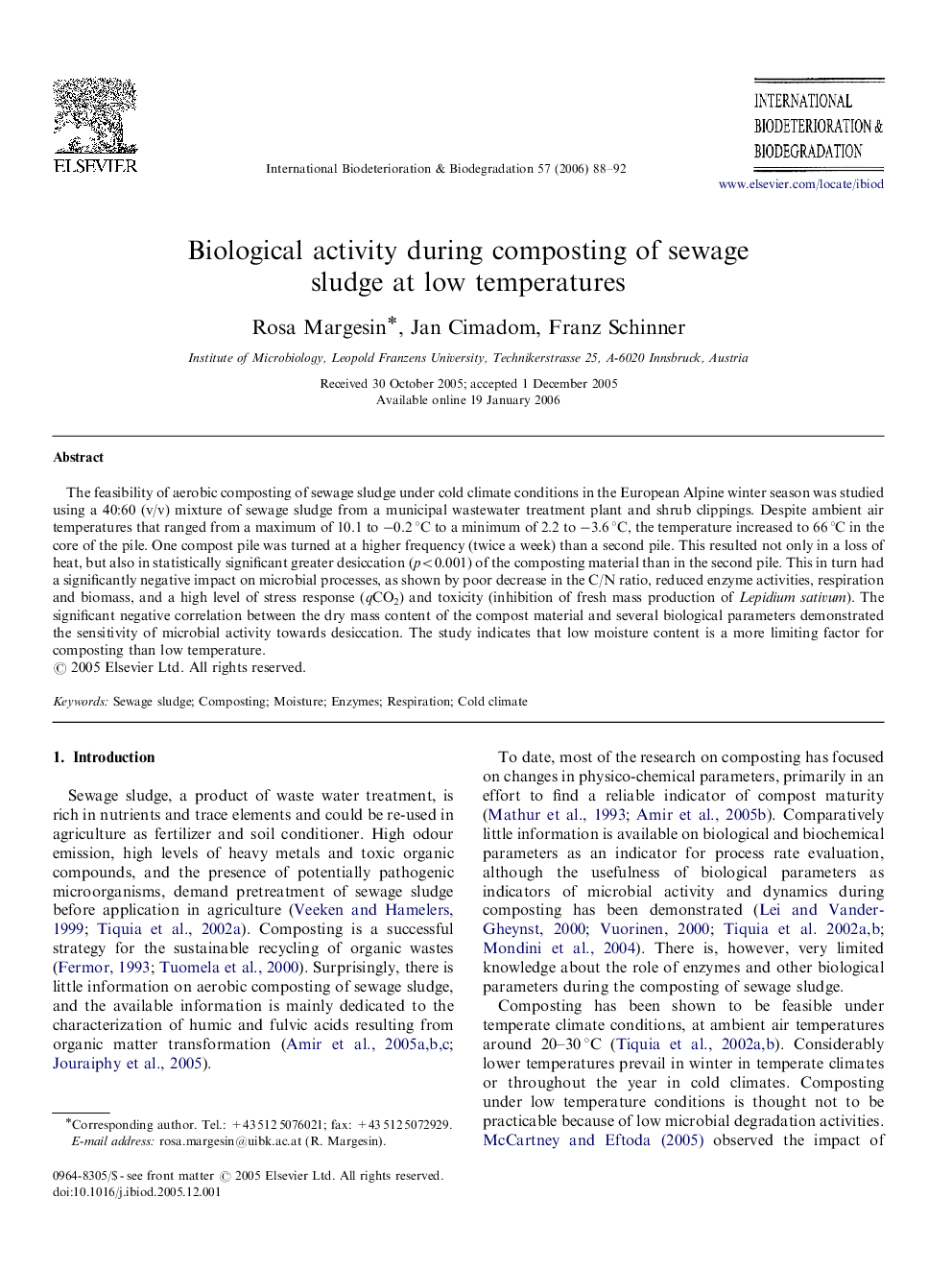| Article ID | Journal | Published Year | Pages | File Type |
|---|---|---|---|---|
| 4365895 | International Biodeterioration & Biodegradation | 2006 | 5 Pages |
The feasibility of aerobic composting of sewage sludge under cold climate conditions in the European Alpine winter season was studied using a 40:60 (v/v) mixture of sewage sludge from a municipal wastewater treatment plant and shrub clippings. Despite ambient air temperatures that ranged from a maximum of 10.1 to −0.2 °C to a minimum of 2.2 to −3.6 °C, the temperature increased to 66 °C in the core of the pile. One compost pile was turned at a higher frequency (twice a week) than a second pile. This resulted not only in a loss of heat, but also in statistically significant greater desiccation (p<0.001) of the composting material than in the second pile. This in turn had a significantly negative impact on microbial processes, as shown by poor decrease in the C/N ratio, reduced enzyme activities, respiration and biomass, and a high level of stress response (qCO2) and toxicity (inhibition of fresh mass production of Lepidium sativum). The significant negative correlation between the dry mass content of the compost material and several biological parameters demonstrated the sensitivity of microbial activity towards desiccation. The study indicates that low moisture content is a more limiting factor for composting than low temperature.
